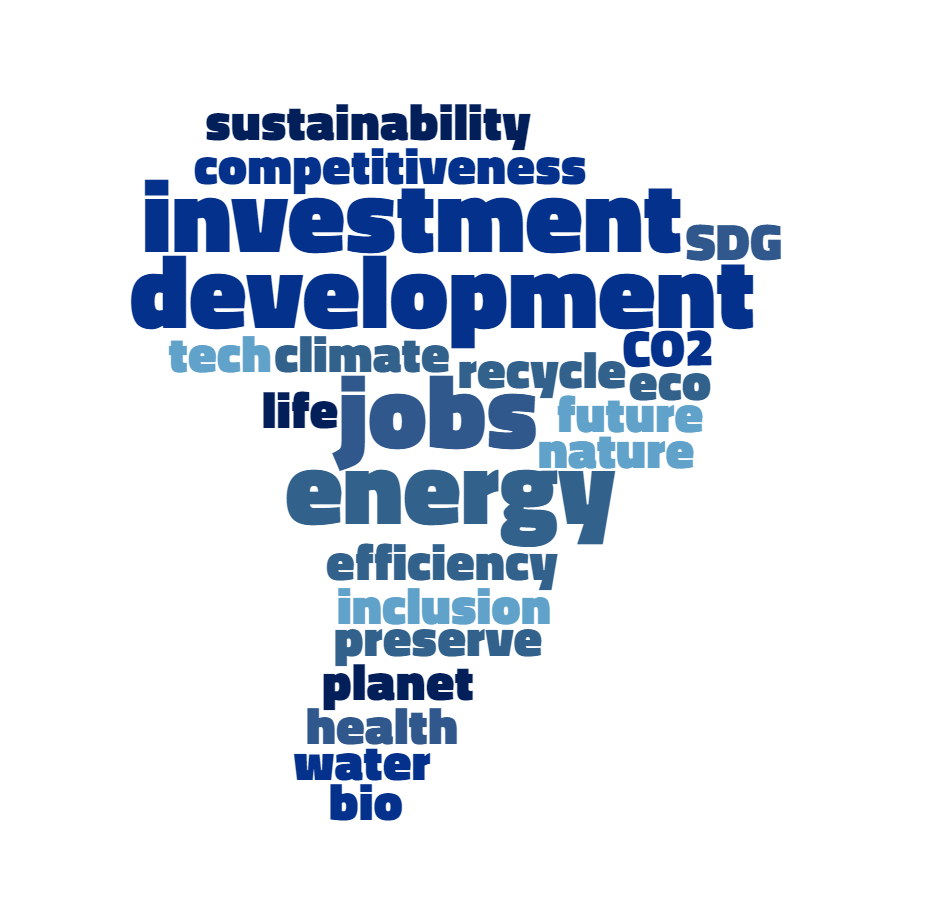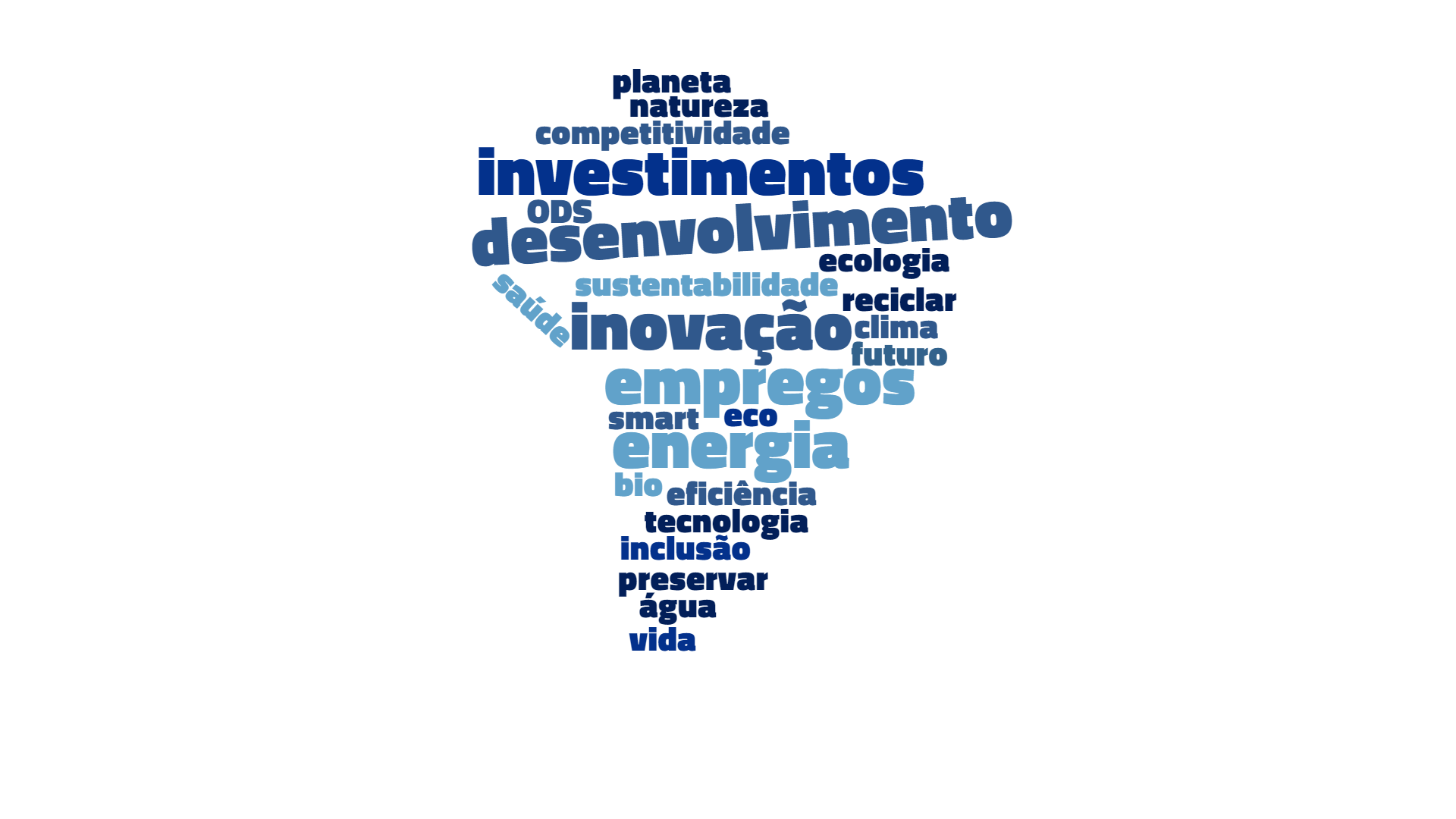ECLAC Presents Cases of Transformative Investments for a Sustainable Economy in Brazil
Work area(s)
ECLAC’s Office in Brasilia, along with the Global Compact Network Brazil, held a “Big Push for Sustainability” webinar on May 26 in which more than 60 case studies on investments for sustainable development in Brazil were presented.

On May 26, a web seminar entitled “Big Push for Sustainability” was held by ECLAC in collaboration with the Global Compact Network Brazil. The objective of this webinar was to launch the Repositório de casos sobre o Big Push para a Sustentabilidade no Brasil. This repository makes available 66 case studies in the context of the “Big Push for Sustainability” in that country. These studies describe experiences and examples of actions, measures, plans, strategies, programs, policies, etc. that have given risen to a set of investments with a positive impact on the social, economic and environmental dimensions of development.
The papers that make up the Repository of Cases on the Big Push for Sustainability in Brazil were selected from the more than 100 studies received via an open call for case studies on investment for sustainable development in Brazil, with the selection process carried out by an Evaluation Committee composed of experts on sustainable development from the Institute for Applied Economic Research (IPEA), the Brazilian Economy Ministry and ECLAC. The initiative received support from the Friedrich Ebert Foundation (FES) and the Cooperation Program between ECLAC and Germany’s Federal Ministry for Economic Cooperation and Development (BMZ), through German Technical Cooperation (GIZ).
The purpose of the initiative was to bring the “Big Push for Sustainability” approach to Brazil in a concrete way, seeking specific examples of investments that transform the development pattern. The Big Push for Sustainability is a renewed approach developed by ECLAC to support the region’s countries in building more sustainable development patterns, based on the coordination of policies to promote transformative investments.
Another objective of the webinar was to launch a publication featuring the cases of the most transformative investments in terms of development sustainability, as determined by the Evaluation Committee. The 15 case studies selected as being the most oriented towards the Big Push for Sustainability in Brazil are showcased in the publication Investimentos transformadores para um estilo de desenvolvimento sustentável: estudos de casos de grande impulso (Big Push) para a sustentabilidade no Brasil. The criteria for selecting the most transformative cases included the number of indicators reported on the three dimensions (social, economic and environmental) and the analysis of the links between the case study and the Big Push for Sustainability and the 2030 Agenda for Sustainable Development, in addition to efforts to represent the heterogeneity and plurality of the challenges and solutions associated with the Big Push for Sustainability in Brazil.
ECLAC’s Executive Secretary, Alicia Bárcena, delivered the opening remarks on the Big Push for Sustainability in Latin America and the Caribbean. “Many people talk about a new normality, but we do not want to return to where we were before, we want a better future and for the Big Push for Sustainability to be the guiding thrust of a strategy to leave this crisis behind,” she stated.
The event drew the participation of experts, authorities and people who lead the agenda for transformative investment in Brazil, including Niky Fabiancic (the United Nations Resident Coordinator in Brazil), Carlo Pereira (Executive Director of the Global Compact Network Brazil), Christoph Heuser (Representative of the Friedrich Ebert Foundation in Brazil), Julio Cesar Roma and Mauro Oddo Nogueira (Researchers, IPEA) and Gustavo Fontenele e Silva (Coordinator of Sustainability and Competitiveness, Special Secretariat for Productivity, Employment and Competitiveness at Brazil’s Economy Ministry). More than 1,800 people participated in the seminar virtually.
Related content

ECLAC presents cases of transformative investments for a sustainable economy in Brazil
On May 26th, the ECLAC office in Brasilia, together with the Brazilian Global Compact Network, held a webinar about the "Big Push for Sustainability", in which more than 60 case studies of…
Subregional headquarter(s) and office(s)
Type
Country(ies)
-
Brazil
Contact
ECLAC Office in Brasilia
- cepal.brasilia@cepal.org
- (5561) 2323-7000